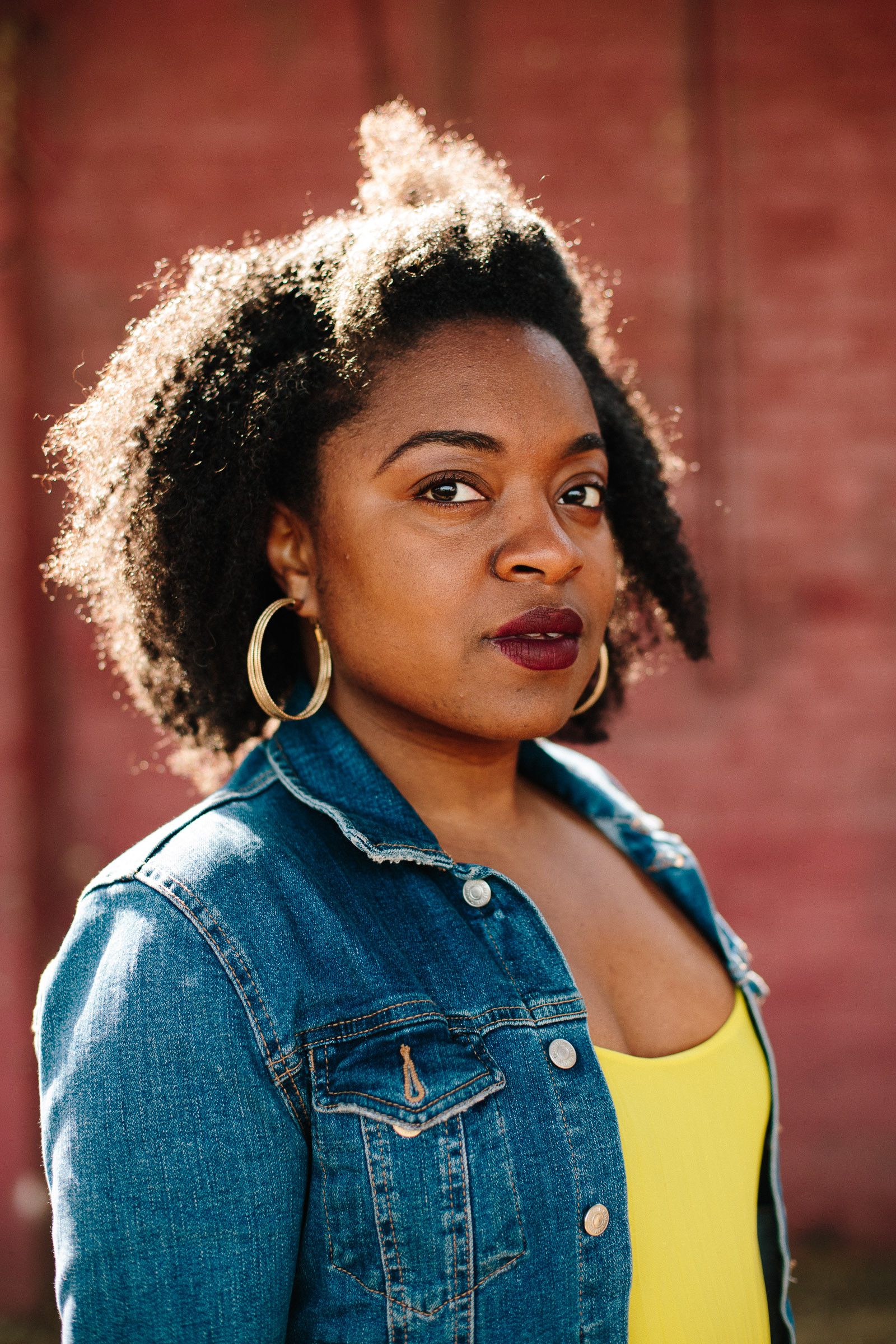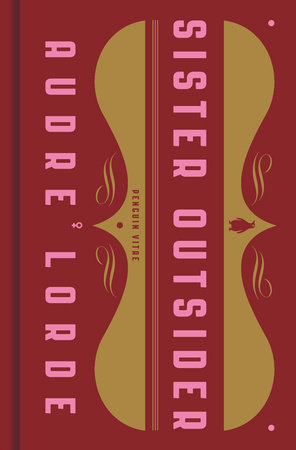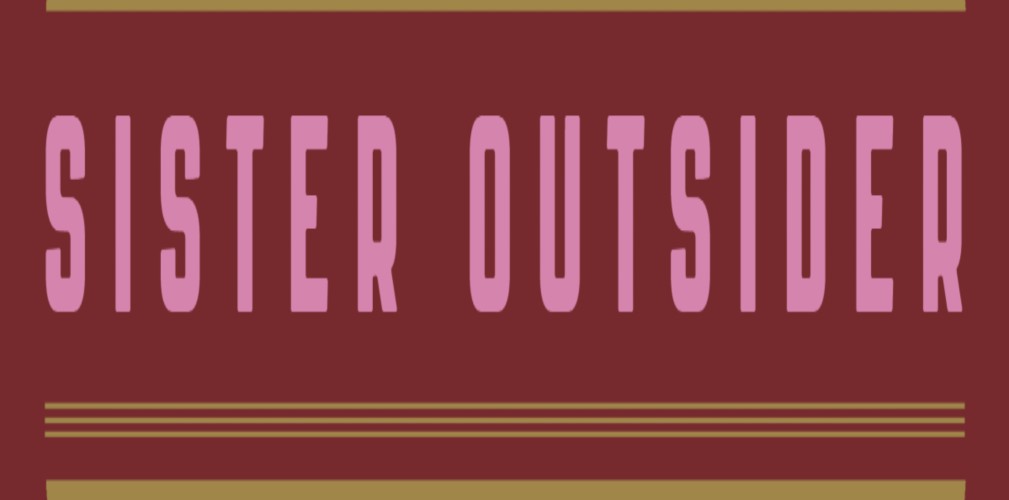Audre Lorde Taught Us: Charlene Carruthers on Audre Lorde’s Groundbreaking Work

Author: Mahogany L. Browne
February 26, 2020
I saw tote bag with black words etched on top “In Lorde I Trust.” This tote bag, carried by someone in my neighborhood somewhere gentrified and busy in Brooklyn, gave me pause and hope. To me, Audre Lorde is a symbol of righteousness and infliction. Lorde is a symbol of the sacrifice one has made to the rage held within and the love one’s ego has sacrificed in search of justice. Audre Lorde, a beacon of Blackness and Womanhood and Lesbianism, a Writer Warrior; compelled, urged and demanded so many speak up for their communities and our shared world. She risked her life writing from the meeting point of her various intersections with a vulnerability that would cause so many humans to shatter from the insistent weight and stress of being a global citizen.
Her writing, a machete; and her collection Sister Outsider, a map. No, maybe it is a weapon, too. Yes. Yes, it is all of these things. Lorde’s hunger to rename and speak of her own body’s will is revealed and revels a splendor that leaves the student/reader/universal eye, restless. The search for the self is a continuous journey, a life with no end if done correctly. Until of course, our final breath. And so we must continue to honor the restlessness with insistent queries, Lorde reminds us growth happens again and again and again, still. This is a series of questions and answers featuring the ideas around Lorde’s work with some of the most profound thinkers, artists, writers, educators, poets, and activists of our time. This is in celebration of the re-release Penguin Vitae hardback edition of Audre Lorde’s Sister Outsider. Enjoy the dirge work
Charlene Carruthers is a political strategist, writer and leading community organizer in today’s movement for Black liberation. She is the founder of the Chicago Center for Leadership and Transformation and author of Unapologetic: A Black, Queer and Feminist Mandate for Radical Movements, available in English and Spanish languages.
When were you introduced to Audre Lorde? And from her work — where did your research go?
I always want to know more about the life someone lived after I read, and find myself deeply impacted by their work. Audre Lorde’s work makes me want to know more about how Black feminist intellectuals socialized with each other. How did they treat each other when conflict arose? How often did the theories they discussed show up in practice? I imagine that they dealt, and continue to contend with some of the same challenges we have today. Lorde’s work makes me ask questions about how she and others related to their Black gay peers. What did they sit around and talk about? Did they have writing groups or was that work done in solitude? I imagine that it was a mixture of many things. I genuinely want to know more about how they lived their lives. She makes me want to ask more questions.
You’ve spent some time with Lorde’s work. Can you talk about the findings and her lineage of thought that you’ve been able to unravel?
Ah! The lineage. I find myself reading her work and reminding myself of the contexts in which she wrote. The language is somewhat different than the language we use today. The gender binaries hold up in some ways and have expanded in others. Black lesbian feels to be in a different place culturally and politically. I wrestle with those dynamics on a regular basis. It is always important to me that I take stock of just how groundbreaking her work was at the time and the lessons I still learn from her today. So much of Lorde’s work is still on the edges of where many of us are today, and I’m talking about those of us who identify as radical Black feminists. Reading Lorde’s work agitates me into asking where I need to push my work and into accepting that future generations will find what I produce today to not capture the fullness of their realities.
In the essay, there is a discussion of anger and rage as fuel and also a destructive tool if not wielded with intention. Can you talk about what that means to you, your identity and your artistic practice?
I am ignited by the invitation to explore my anger and rage as a constructive tool. I have a lot to be angry about, so much around me is not ok. People suffer, I suffer, from systems of oppression that do not have to exist–they exist because they benefit some at the expense of the many. I’ve found ways to channel my anger into my work as a writer, activist and community organizer. I create within each of those spaces. I’m leaning more deeply into writing as I grow older and accepting that as a place where I can practice my art in solitude and community. And still, there is still anger and rage there. I don’t have a place for it all. It’s a lifelong journey.
When considering your work & the communities you engage with, can you give a specific example of Lorde’s being used as a productive tool?
I make up movies in my mind whenever I read stories about someone else’s life. Lorde’s work turns on that switch for me every time I sit with her work. She was a masterful storyteller who made sense of her theory by sharing real-life experiences. That is one of the most powerful tools I’ve ever had as a community organizer and writer. It is as if she built a story bank to make theory touchable. Effective activists, organizers, and leaders do the same thing. She didn’t just say that Black lesbians experience many forms of oppression, her work shows us. Any campaign that I’ve been involved in that was about getting us closer to collective liberation always aimed to tell as full of a story as possible and was in service of creating as complete of a solution as possible.

